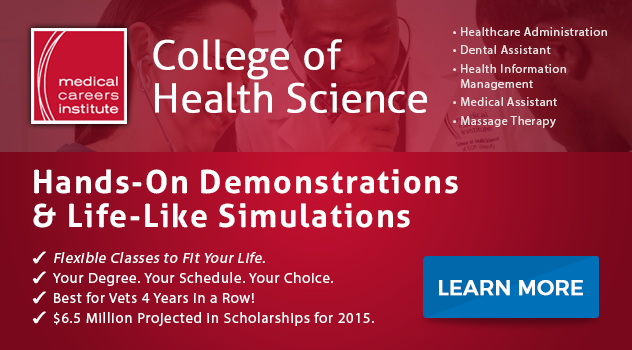What is Medical Assisting and is it Right for Me?
The Bureau of Labor Statistics estimates the demand for medical assistants (MAs) will grow by at least 29% by 2026. This explosive growth in demand highlights the important role medical assistants play in hospitals, nursing homes, doctor’s offices, and clinics. But what exactly does a medical assistant do? What qualities would make a person a good candidate for these positions?
The Role of a Medical Assistant
The purpose of a medical assistant in the workplace is to help doctors provide the best care possible to their patients. Medical assistants do this by taking responsibility for a number of administrative and clinical tasks.
- Record patient information like history, current medical therapies, and presenting symptoms.
- Measure heart rate, blood pressure, and other vital signs.
- Administer medication as ordered by doctors.
- Schedule appointments and lab tests.
- Prepare samples for transport to labs and complete in-office sample testing.
- Maintain the completeness and accuracy of patient records.
These tasks allow doctors to quickly assess patients, formulate effective treatments, and keep track of on-going conditions or therapies. Without medical assistants, doctors would not be able to meet the public demand for professional medical attention.
In small offices, a medical assistant may be responsible for everything from answering the phones and ordering cleaning supplies to assisting the doctor in a delicate in-office procedure. In larger organizations, assistants usually specialize in either clerical/administrative or clinical roles.
Characteristics of a Successful Medical Assistant
Most candidates are drawn to medical assisting because they love to help others. A healthy sense of compassion and empathy are important qualities for all medical professionals. To be a successful medical assistant, however, candidates need more than the desire to make other people feel better.
- Communication skills. MAs spend a lot of time talking to patients and writing down what they say. Assistants need to be able to speak clearly while maintaining a caring yet professional attitude.
- Outgoing/friendly demeanor. To get the most accurate information from their patients, MAs need to be comfortable talking about personal issues. A friendly and nonjudgmental approach makes it easier to get information doctors can use to formulate diagnoses.
- Active listener. Assistants may need to draw information out of reluctant patients. Active listening skills help assistant zero in on verbal clues and follow up with the right questions.
- Organized. The HIPPA Privacy Rule outlines guidelines for keeping sensitive medical and personal information safe. Medical assistants are an essential part of keeping patient’s private information secure. MAs must be able to keep paperwork and electronic records private, organized, and easily accessible.
- Adaptable. Things can change quickly in the medical field. Medical assistants that are able to multi-task or change directions swiftly are better equipped to handle the fluctuating demands of a medical practice.
Clinical skills and medical knowledge can be taught. However, these intangible characteristics are just as important to helping patients and doctors.
Benefits of a Medical Assistant Career
Medical assistants enjoy a personally fulfilling career with high demand. Beyond feeling good, a career in medical assisting offers many other benefits.
- Variety. The variety of skills and general knowledge MAs hold make them ideal employees. They are versatile enough to fulfill an endless list of duties in medical settings. This means a medical assistant never has to worry about being bored or out of work.
- Stability. Unlike other nursing professionals, MAs usually stick to regular office hours and predictable schedules. The high demand also means a licensed MA might never have to struggle to find satisfactory employment.
- Opportunity for advancement. MAs can use their on-the-job experience or continuing education to hone their skills. With time, they can qualify for more responsibilities, different types of assignments, and higher pay.
- Flexibility. The medical skills MAs use daily make them an integral part of every medical office. Experienced MAs can choose their work based on their own interests or goals. Many MA positions are also part-time, giving candidates the freedom to continue their education while employed.
Are you interested in a career in medical assisting? If you want to earn an Associate of Applied Science Degree in Health Science with a concentration in Medical Assisting, consider ECPI University for your education. With accelerated courses, you could finish your degree sooner than at a traditional college. For more information, connect with one of our friendly admissions representatives today.
It could be the Best Decision You Ever Make!
DISCLAIMER – ECPI University makes no claim, warranty, or guarantee as to actual employability or earning potential to current, past or future students or graduates of any educational program we offer. The ECPI University website is published for informational purposes only. Every effort is made to ensure the accuracy of information contained on the ECPI.edu domain; however, no warranty of accuracy is made. No contractual rights, either expressed or implied, are created by its content.
Gainful Employment Information – Medical Assisting – Associate’s
For more information about ECPI University or any of our programs click here: http://www.ecpi.edu/ or http://ow.ly/Ca1ya.





